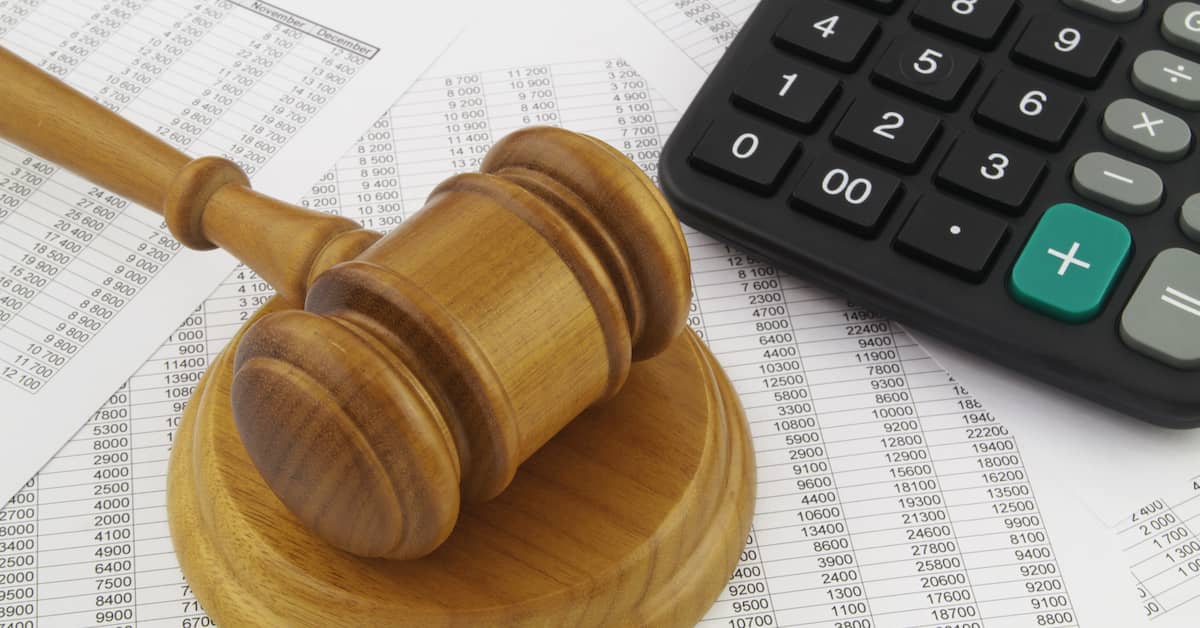Some Known Details About Securities Fraud Class Actions
Wiki Article
The 10-Minute Rule for Securities Fraud Class Actions
Table of ContentsLittle Known Questions About Securities Fraud Class Actions.Securities Fraud Class Actions for DummiesAn Unbiased View of Securities Fraud Class Actions8 Easy Facts About Securities Fraud Class Actions ShownThe 10-Second Trick For Securities Fraud Class ActionsSecurities Fraud Class Actions - The Facts
Several protections course activities will certainly contend least one derivative fit as a "tag-along" fit. In 1998, Congress passed the Securities Lawsuits Uniform Criteria Act (SLUSA) in an effort to shut a loophole in the Exclusive Securities Lawsuits and Regulatory Enforcement Reform Act of 1995 (PSLRA) that enabled complainants' attorneys to file nationwide safety and securities course actions in state courts.
Our litigators are experienced in assaulting "demand futility" accusations made against a board. We have achieved success in acquiring stays of the fit or exploration, know when to and when not to establish a special litigation committee, and how to prevent having the tail wag the pet dog with regard to acquired legal actions and safety and securities class actions.
The Best Guide To Securities Fraud Class Actions
A private investor who depend on the chief executive officer's preliminary statement to purchase stock could take legal action against the company before Fundamental; what Fundamental enabled is for fits consisting of course activities to continue also if the suing investors did not know about or straight count upon the statement. The Court seems to have believed promoting class activities this way would progress the twin purposes of anti-securities-fraud regulations: target settlement and scams prevention.A crucial demand of the assumption is that an alleged falsehood has to have really had some influence on the rate of the protection traded by the plaintiffs; otherwise, the complainant can not be stated to have counted on the falsehood, also indirectly. According to Standard, a defendant can rebut the presumption by revealing that there was no such cost influence, thus "cut [ing] the link" between fraud and cost.
Between 2002 and 2004, nearly fifty percent of all pending class actions in government courts were safeties related. Considering that 2012, securities-fraud matches have gradually increased each year; most recently, there was a 7.
Our Securities Fraud Class Actions Ideas
The PSLRA increased pleading criteria and included a number of various other reforms; significantly, the original draft of the Act would have gotten rid of the Fundamental anticipation completely. However, while the PSLRA did reduce unimportant suits somewhat, the continuing surge in securities-fraud course activities suggests that too much lawsuits remains a serious problem.
At a minimum, after that, there appears to be assistance in the courts, the academy, and the legislature for both (1) reducing meritless securities-fraud filings and (2) guaranteeing that such cases, when filed, do not endure the motion-to-dismiss or class-certification stages of lawsuits. A chance to attain one or both of these goals via judicial intervention emerged in Halliburton II.
Halliburton II: The Supreme Court's Response to the Surge Halliburton II marked the second time that the content long-running course action versus Halliburton Co. for supposed securities scams then in its thirteenth year had actually been before the High court. In 2011, the celebrations had actually clashed over whether complainants should show loss causation prior to or after class certification.
More About Securities Fraud Class Actions

He assumed an in contrast judgment would be strange because the very same evidence that accuseds would introduce to reveal that there was no rate impact was already acceptable before course accreditation in order to respond to a component of the Standard presumption. If the evidence stopped working to respond to that component of the presumption however did verify that there had been no price influence, a district court would need to blind itself to this truth and certify the course under the fraud-on-the-market theory, despite the fact that the theory was plainly not applicable.
Halliburton did attempt to elevate plan problems for example, that securities-fraud course actions might "permit plaintiffs to obtain huge negotiations. The Chief Justice said that these types of problems were "more properly resolved to Congress," aiming out that Congress had shown itself eager to respond to "perceived abuses" of 10b-5 course activities by establishing the PSLRA.
The 4-Minute Rule for Securities Fraud Class Actions
He would have overthrown the Fundamental anticipation, which in his sight has resulted in "an unrecognizably wide reason of action ready produced class accreditation" that is irregular with both the economic literary works and the Court's succeeding class-certification caselaw. Doubting that a chance for pre-certification answer would certainly complete much, Justice Thomas contended that as an useful issue reply had actually so far confirmed almost impossible and would certainly remain to be so also if allowed prior to class accreditation.Analysts and common feeling alike suggested that by paying for offenders a possibility to defeat meritless insurance claims before a class was certified (and prior to the stress to resolve ended up being frustrating), Halliburton II would enable those meritless claims to in fact be defeated at a meaningful price. This Part says that Halliburton II's assurance was an impression and could have been identified as such on the day that the choice was provided, for one basic reason: the price-maintenance theory.
In concept, the price impact to be rebutted can show up in 2 ways. The first so-called "front-end" cost effect is evident: a misrepresentation can trigger a change in market assumptions regarding a protection and set off a prompt swing in its rate. For instance, think the marketplace anticipates a business to earn earnings of $100, the firm really does gain $100, yet the CEO exists and reports earnings of $125.
The 45-Second Trick For Securities Fraud Class Actions
Considering that the marketplace's expectations were met, the rate of the business's stock here are the findings need to stay stable at the pre-misrepresentation standard. Nonetheless, the price-maintenance theory holds that there is price influence, because the misrepresentation protected against the market cost from falling as it would certainly have if the CEO had levelled. Here, too, inflation will dissipate once a corrective disclosure leads the market to incorporate the truth into the market price.Instead, accuseds need to reveal that none of the cost motion on the date of a supposed restorative disclosure was connected to the disclosure. This is a high order. There will certainly generally be some cost movement on that day, due to the fact that complainants commonly submit 10b-5 matches following a considerable cost change alleging it was the result of a restorative disclosure.
Consequently, defendants usually can not convincingly show that none of the drop was associated to the restorative disclosure, and the price-maintenance theory if valid has made it beside impossible for accuseds to rebut the anticipation, even in meritless situations - Securities Fraud Class Actions. B. Complainants' Conjuration and Courts' Acceptance of the Price-Maintenance Concept There is little question that the concept stands
Report this wiki page